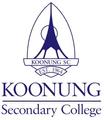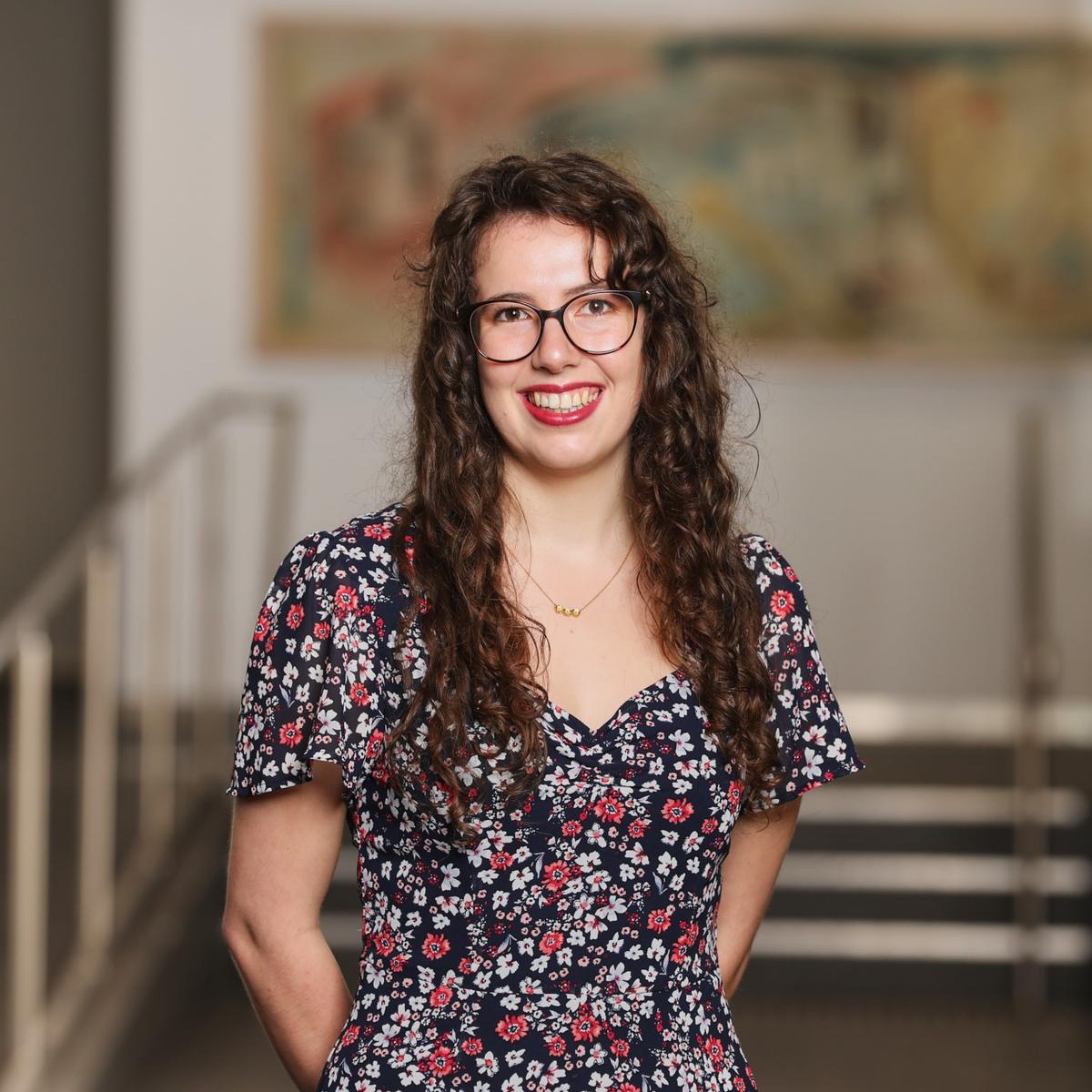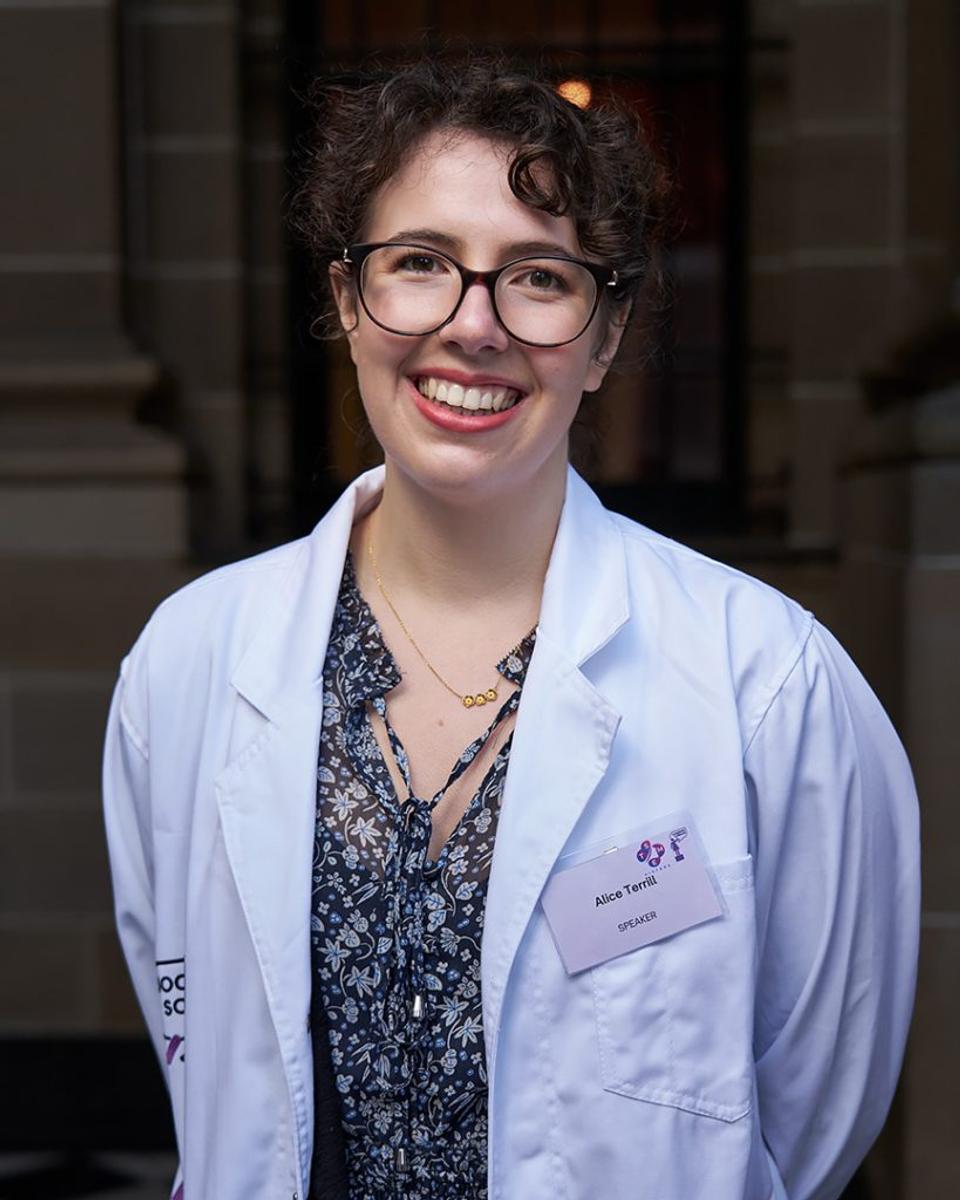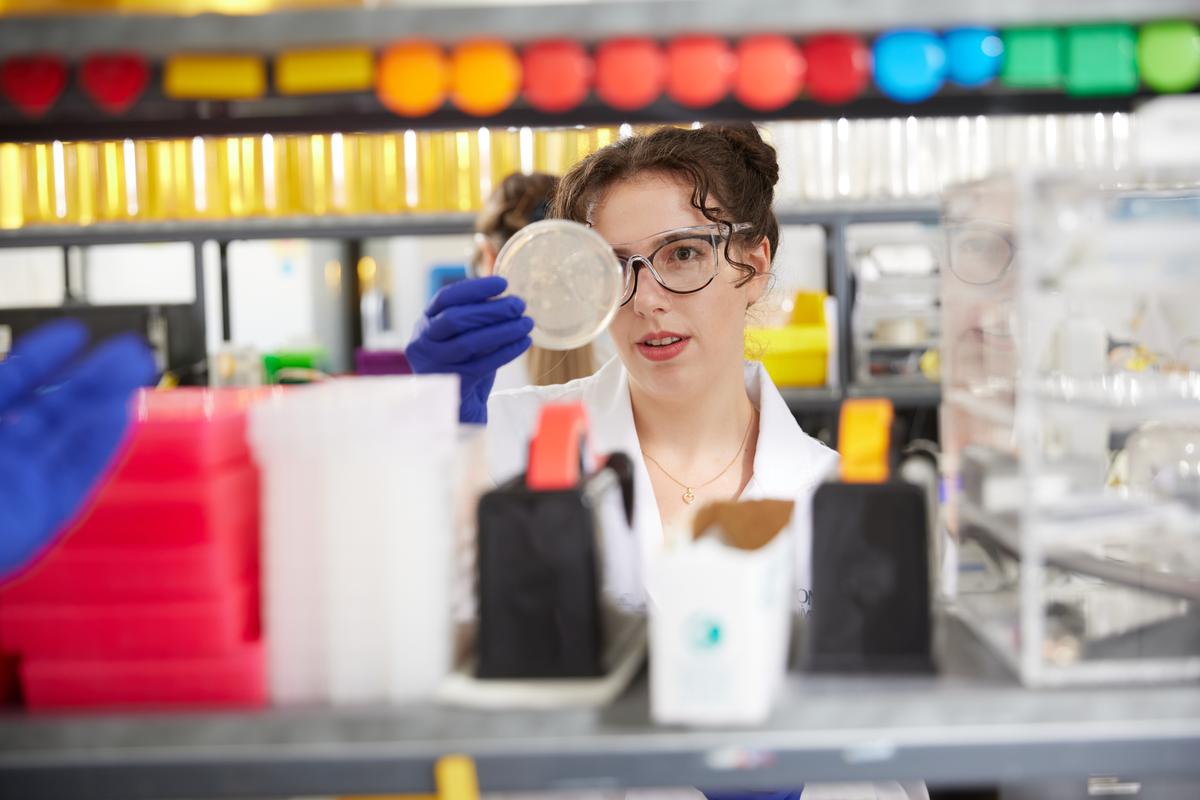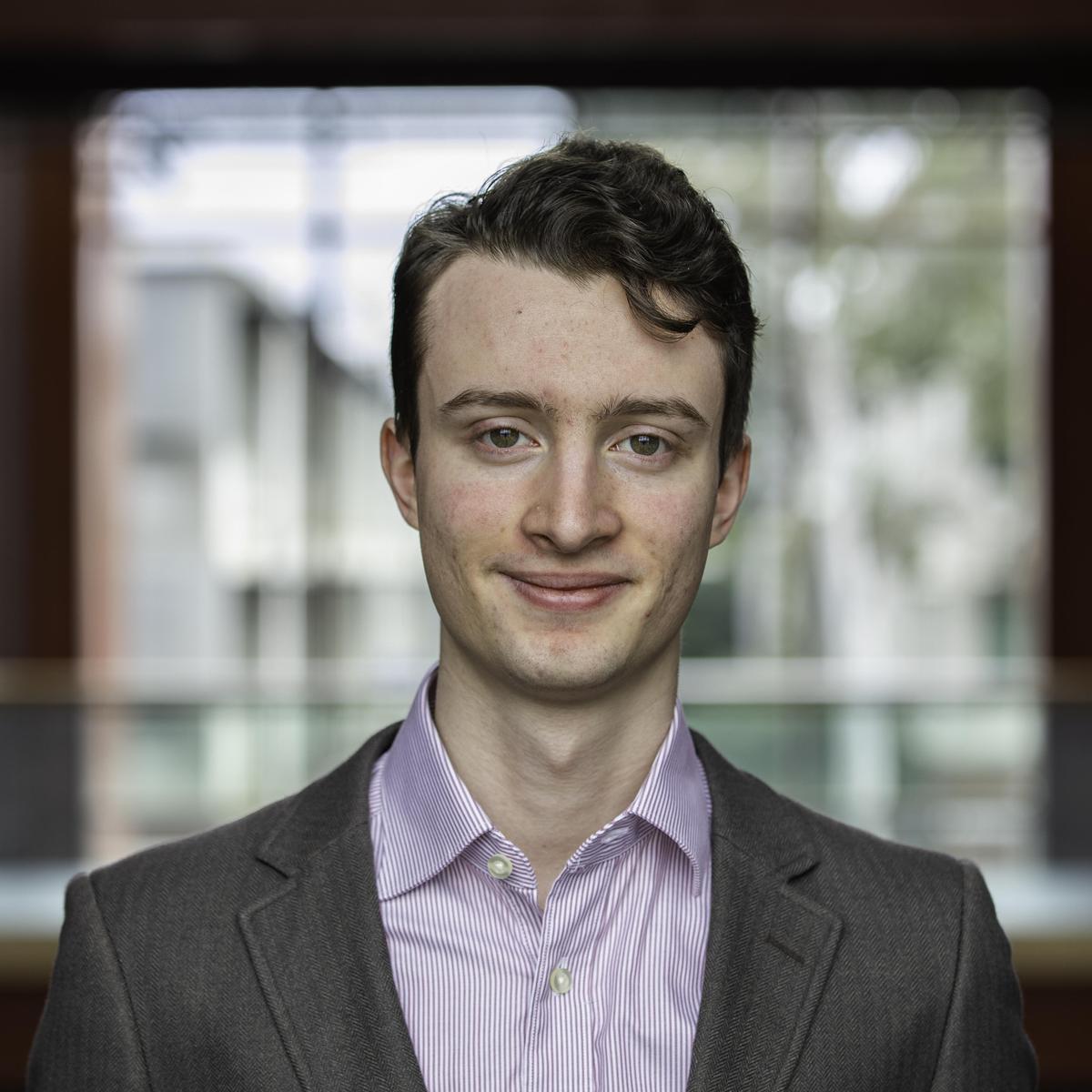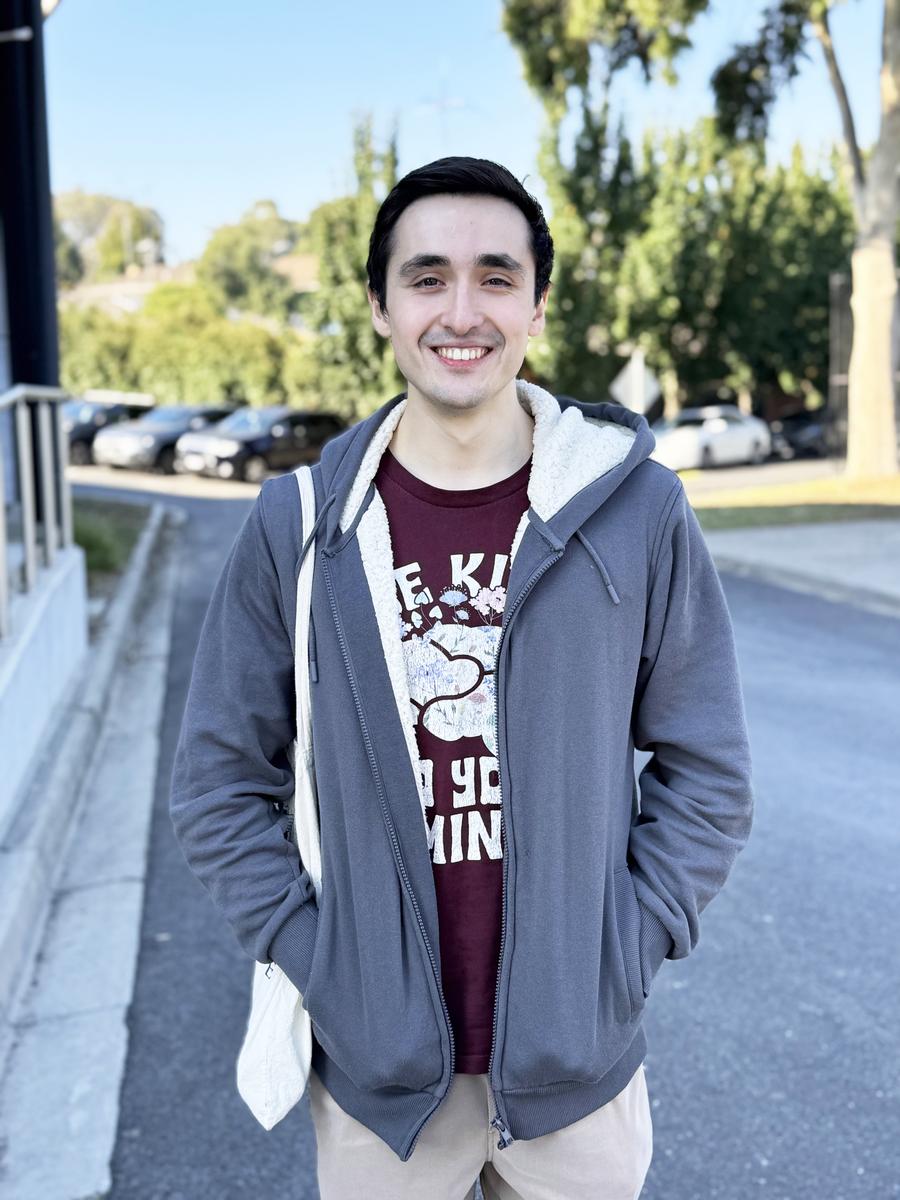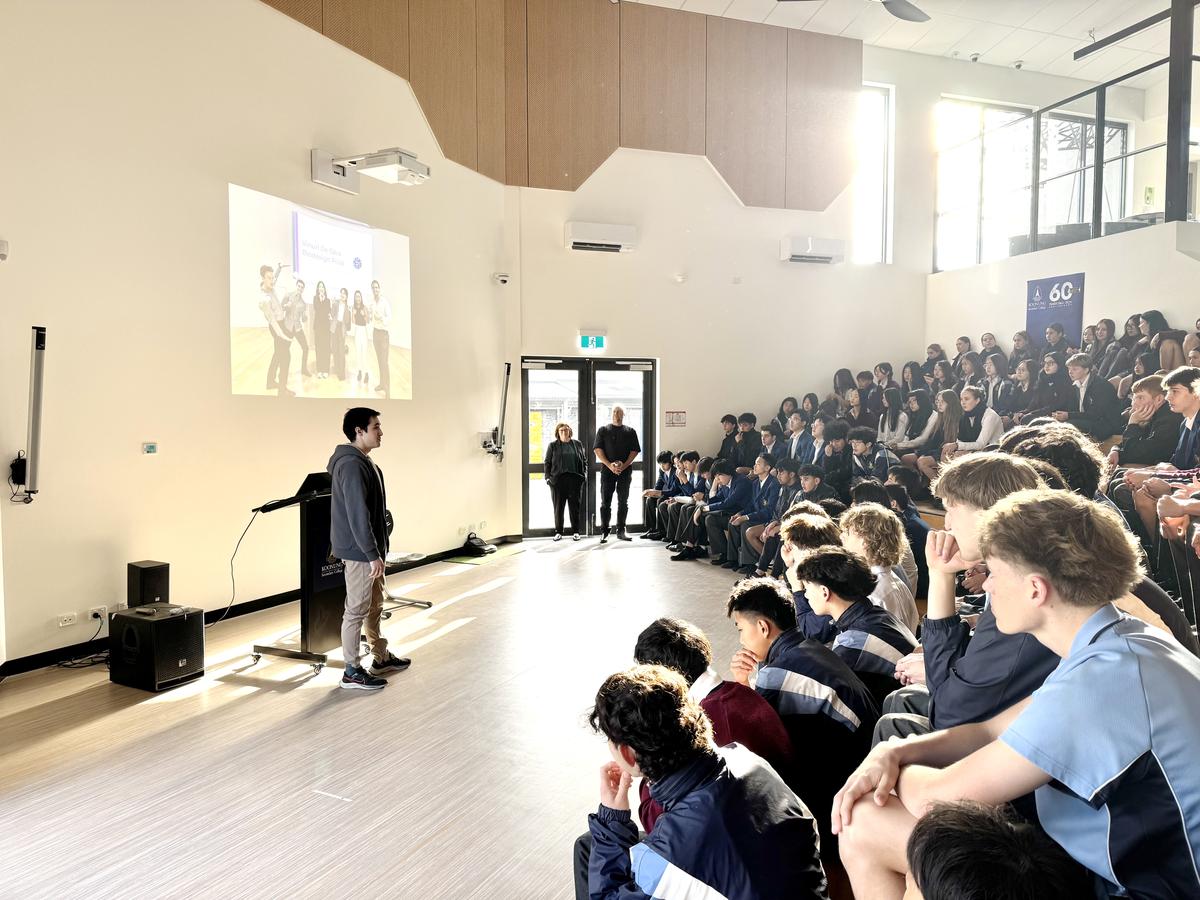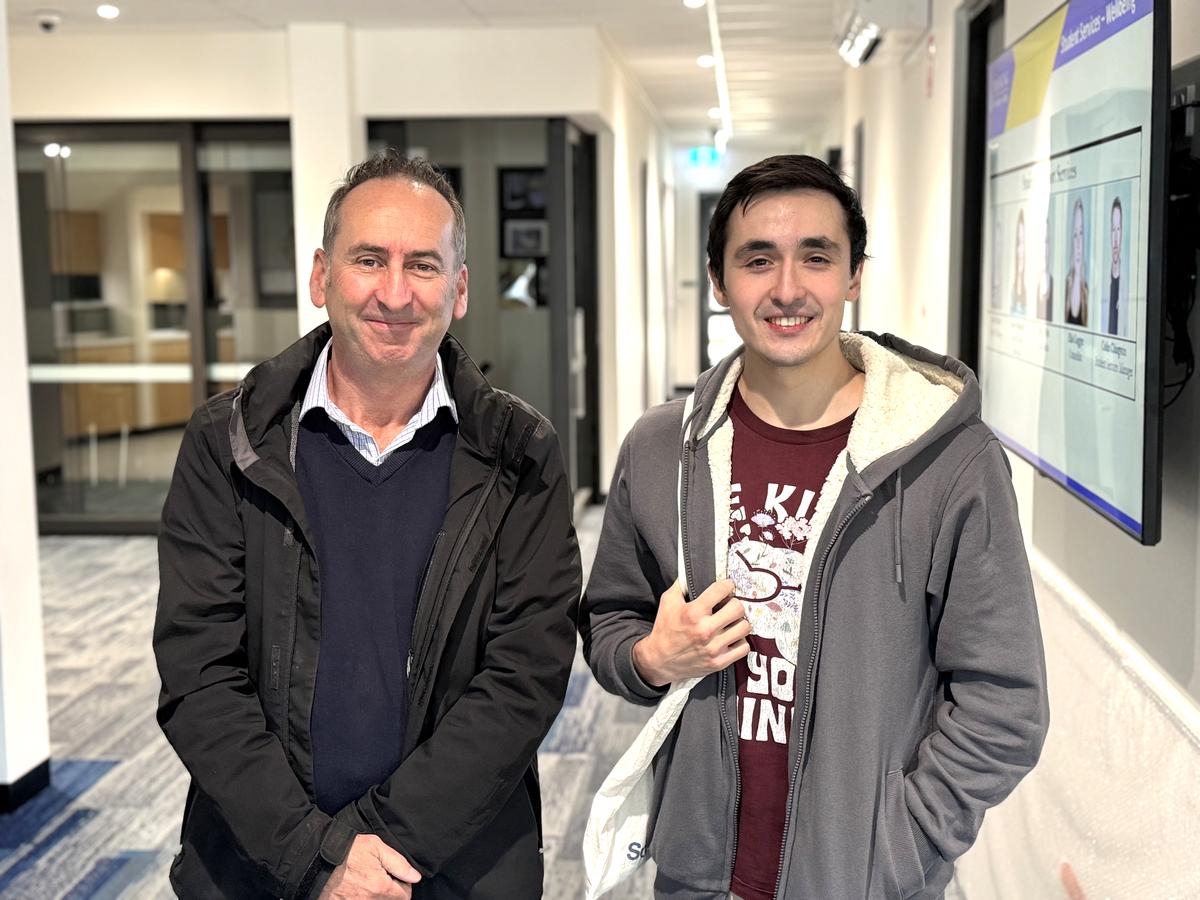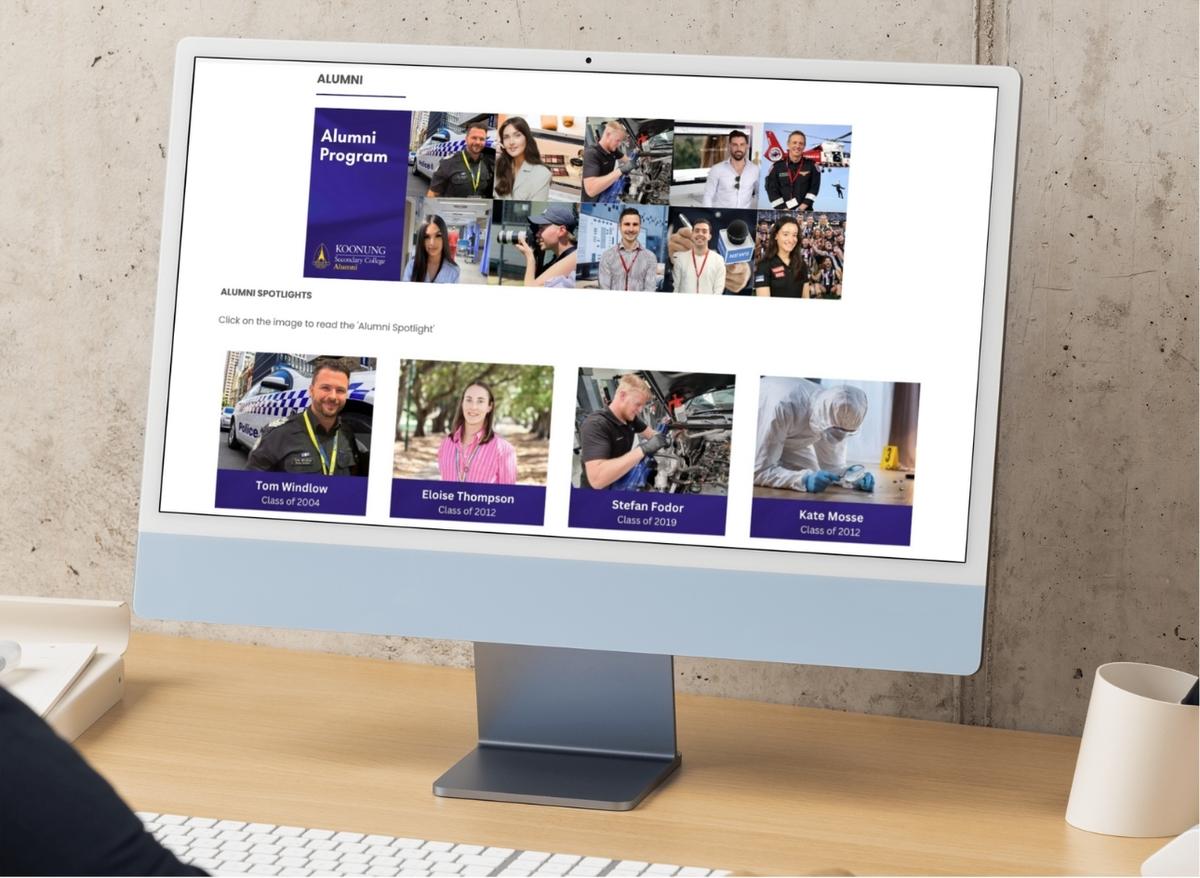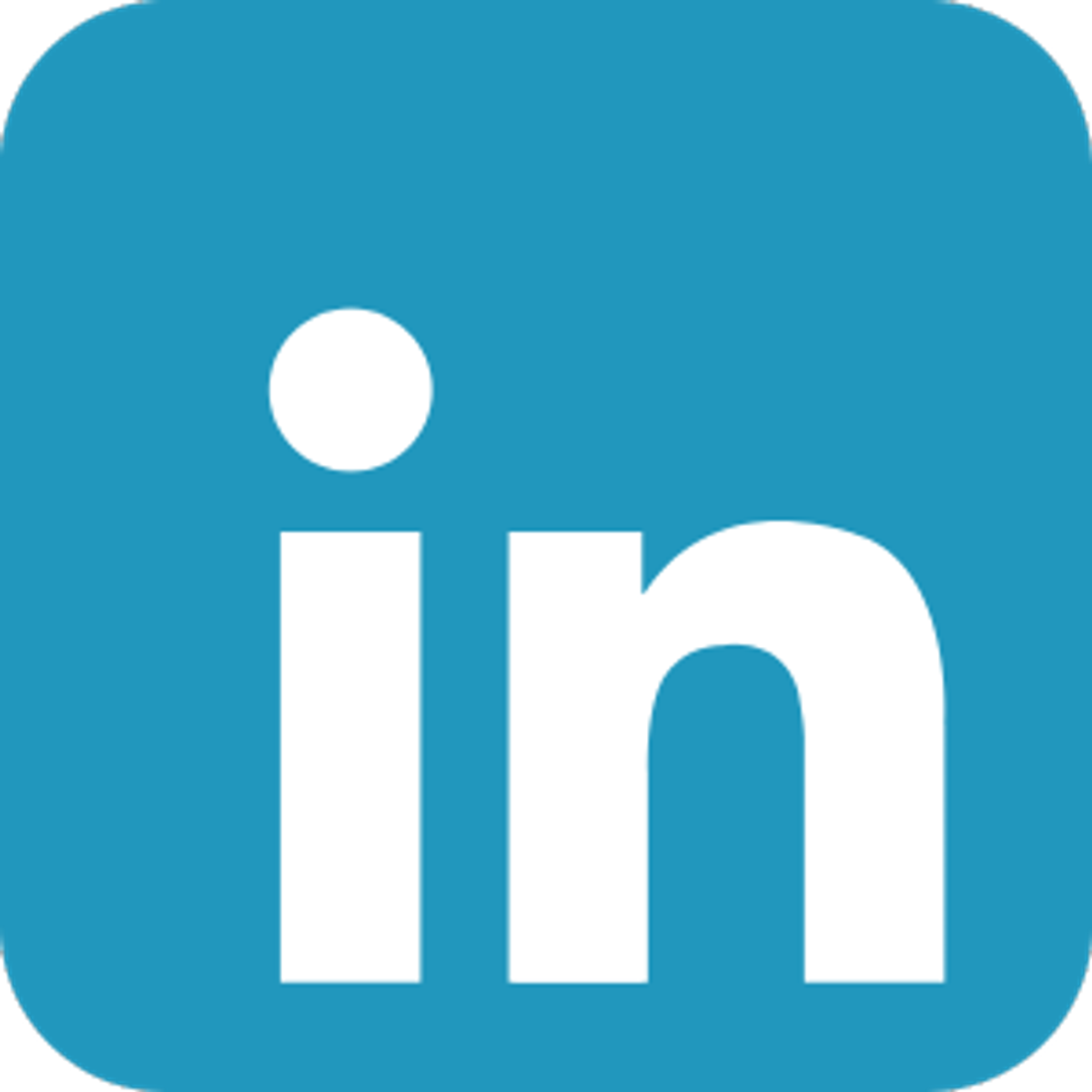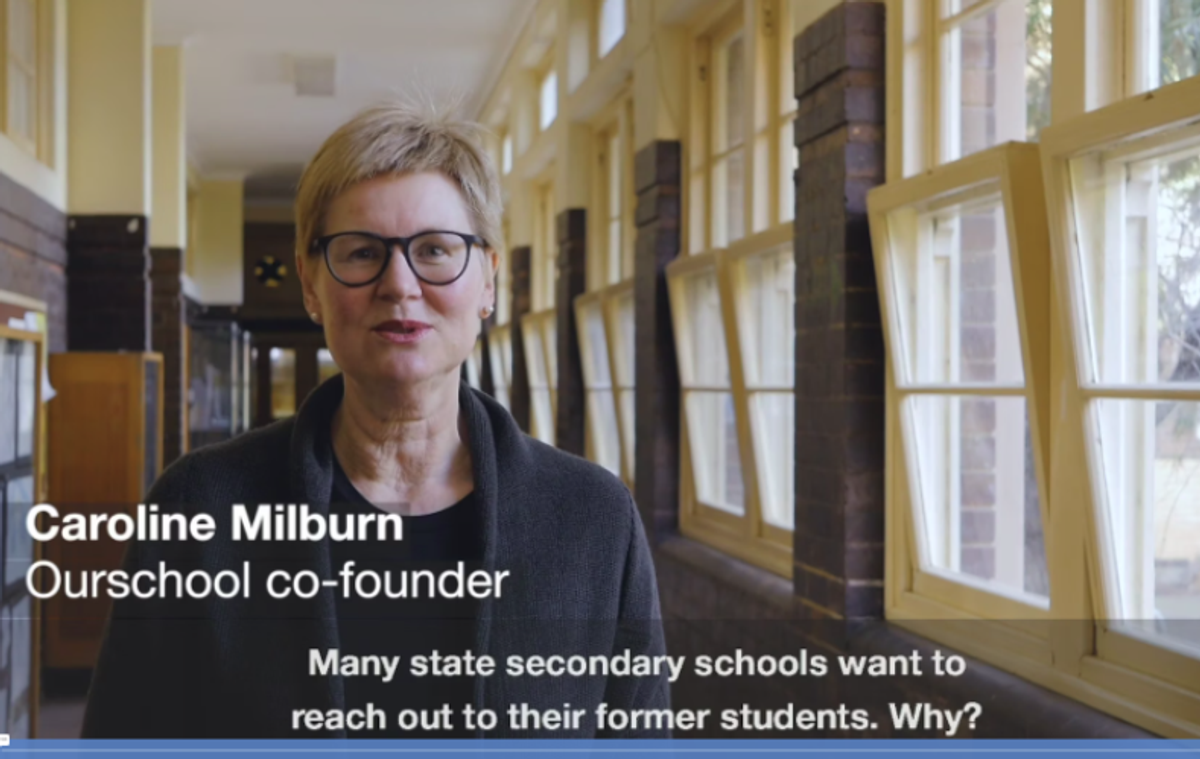Alumni Program
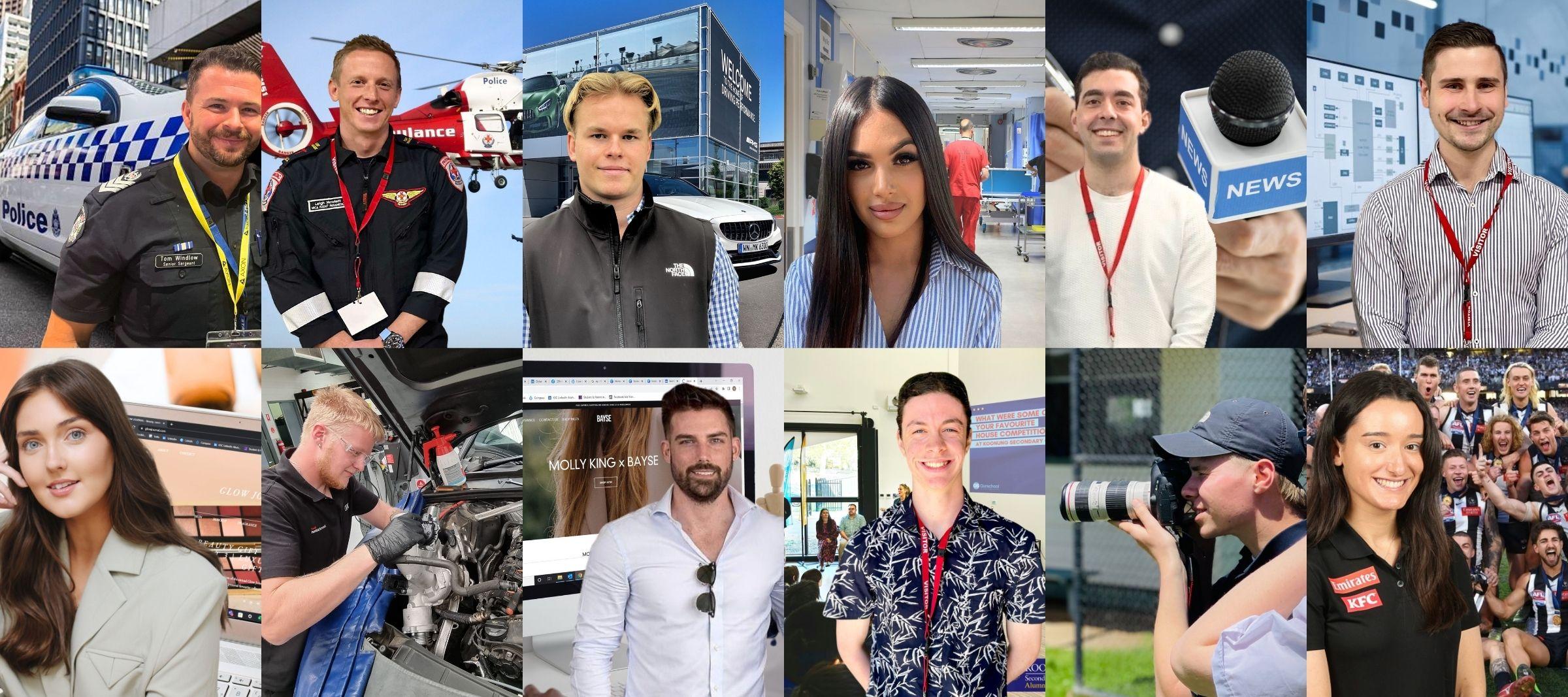
ALUMNA SPOTLIGHT
Alice Terrill
Class of 2018
PhD Candidate and Assistant Lecturer at Monash University
Where life has taken you since graduating from Koonung?
After finishing high school I started a Bachelor of Pharmaceutical Science (honours) at Monash University and loved it. In my second year of study I started work running Peer Assisted Study Sessions through the university. As my degree progressed, I picked up more casual roles, gaining experience in the Student Experiences team, Access, Inclusion & Success team, and as a research assistant.
In 2023 I began a PhD at Monash University, and also commenced working as a Teaching Associate. My PhD investigates antimicrobial resistance, with a focus on how we can optimise dosing regimens to ensure effective treatment and minimise the emergence of resistance. Through my studies I travelled to Perth, Sydney and Spain to present my research!
In 2024, I took on the role of Assistant Lecturer.
What memorable experiences or achievements have shaped your life since finishing / graduating from Koonung?
I have kept a strong involvement with Rotary (after being a keen member of Interact while at Koonung). This volunteering has taught me a whole range of skills that have allowed me to truly test my limits and also excel at work. My involvement with Rotary has taken me on numerous trips to Sydney and Canberra, as well as one to Singapore where I was a panellist at an international conference! The world-wide band of friends I have gained from these experiences is amazing, I'm currently planning a trip to Canada next year to connect with them again!
What does your job involve?
My PhD involves both time in the lab and at my desk. In the lab I spend time growing bacteria, and trying to kill them. I do a lot of pipetting and working with petri dishes to test bacteria with different antibiotics. At my desk, I am developing mathematical models that describe and predict the results we see. A PhD also involves a lot of reading, to keep up to date with the latest literature, and writing, to share my results.
As an Assistant Lecturer I teach undergraduate students, and also support content development and delivery.
What do you most enjoy about your work?
Working in the lab, playing fun tunes, and getting to answer the questions that no one has ever tested before is really cool!
What skills or qualities are important in your line of work?
Perseverance is more important than anything else to get through a PhD.
What are your favourite memories of your time at Koonung?
It would have to be the lunch times spent with friends, I track what year I was in by where we used to hang out at lunch. The laughter and conversations shared with them shaped my teenage years.
How would you describe yourself as a school student?
I was a very studious and dedicated student, and a true nerd as the Interact Captain in year 12.
When you were a student at Koonung, what did you imagine you would do for a career?
Nothing where I had to use code - which I do now for my mathematical models! I knew I loved science but honestly had no idea what careers were available in that field.
If you could go back and give advice to your school aged teenage self, what would that be?
Always stay true to yourself and always be kind. You don't know what anyone else's full story is, but you're all just trying your best to make sense of your place in the world and that's not easy. So be kind.
ALUMNUS SPOTLIGHT
Alexander O’Brien
Class of 2019
Systems Engineer, Department of Defence
Where has life taken you since graduating from Koonung Secondary College?
Since graduating, I immediately started studying a bachelor of Aerospace Engineering at Monash University. I’d always wanted to work in rocketry, and so I joined the Monash High Powered Rocketry (HPR) student team in my second year. It was an awesome experience, and very hands on (in between lockdowns), and had the additional benefit of being engineering professional development. I used this experience to land an internship with the Department of Defence in my third year.
This allowed me to continue studying full time, and work part time. I also worked full time in my university holidays and while that sounds like a lot, there was still time in my later years at university to hang out and study with my friends, while also earning a bit of money and getting experience at a pace that wasn’t overwhelming.
Once finishing university, I moved into a full time role with Defence. After 6 months, I switched to the Defence Graduate program, allowing me to experience multiple rotations with different areas inside of defence. I’ve also started multiple hobbies since high-school, including writing, rocketry and miniature painting!
What further education did you pursue after graduating from Koonung Secondary College?
Bachelor of Aerospace Engineering (Honours)
Did you have any idea what sort of career you wanted to pursue when in your secondary school years at Koonung Secondary College?
Yes! All throughout high school I wanted to be an astrophysicist, and build rockets/spacecraft. I was lucky to realise about 2 months before graduating, that astrophysicists aren’t really responsible for design and build work, and I studied engineering instead.
What does a typical day look like in your current role?
I usually arrive around 8am at the office, and check through my emails and sort out my tasks for the day, including updating all my documentation (an annoying process, but important for record-keeping and transparency). From 9-11 is my most productive time, and the nature of the work is too varied to nail down to any specific aspect. It could be writing technical reports, reviewing work submitted from our contractors, learning the necessary maths and context for a new piece of equipment, or designing equipment (and doing the associated paperwork). We usually have meetings around 11, and lunch from 12-12:30. The afternoon is usually some combination of the aforementioned work, before leaving at 4pm.
It is worth mentioning the practical testing aspect of the role, which will usually involve anywhere from 2 days to 2 weeks spent out with our ADF unit, actually testing the equipment we provide. These are very long days (usually 7am-8pm, or later), but immensely rewarding. It’s almost always interstate, and test ranges usually double as national parks, so it’s great scenery! Everything that the systems are meant to do will be done in testing, and pretty frequently involves live employments of some pretty expensive weaponry. I’ve been in several types of armoured vehicles, had fighter jets fly low over me, and many more unforgettable experiences.
What do you enjoy most about your job and what are the most rewarding aspects of your job?
Defence work is a unique intersection of engineering types, I am able to experience the more technical aspects, as a research/design engineer would, while significant bodies of work are more management engineering focused, auditing, reviews, validation and contractor coordination. It provides me with aspects from every engineering profession and discipline. Military equipment is also often more technically complicated and challenging to work with than civilian products, and has provided me with much cutting edge learning. For someone who has always been fascinated by the physical limits of the equipment that humans can design, there is no better place!
What specific skills are important in your line of work?
Interpersonal skills, flexibility and patience have proven the most valuable to me. As in any workplace, your co-workers, customers and higher ups make or break the experience. Being confident enough to ask for and take opportunities, assertive enough to stand behind work you are proud of, and having enough empathy and emotional intelligence to read and interact well with people will always serve one well.
Especially in defence however, where (generally) ample technical training is provided, soft skills become really important. Flexibility has been crucial too. Military systems, particularly in the modern era, are no longer focused on one engineering discipline. While my project contains several advanced aerospace related aspects, where my university education is directly applicable, many other systems have required me to learn in depth aspects from other engineering disciplines such as mechanical, electrical and software. The broad nature of the engineering work also requires flexibility on smaller points, but good engineering judgement will have value anywhere. Patience has been the unexpected hero in my experience, as so much of an office job is spent waiting on replies to emails, or waiting for contract deliverables to come through. Being able to use my time productively to seek out and find learning, or complete other tasks in the lulls and waiting periods has proven valuable to me.
What leadership positions did you hold at Koonung Secondary College?
I was lucky enough to be one of KSC’s Inaugural Science Captains, and thoroughly enjoyed the role. You get out the effort that you put in!
What advice would you give to current Koonung Secondary College students who are interested in pursuing a similar career?
Study hard until you meet the baseline of technical skill required for the role, but after that, go out and seek out the experience you want. If you’d like to work with drones, buy some cheap second hand parts and build one! Get into hobby rocketry, or teach yourself to code (make a doorbell to your room, or automate an RC car). Do the minor service on the family car (with permission and supervision ideally). The availability of engineering learning is better than its ever been, and if you want to do something, the tools exist, it’s just waiting for you to go and action it!
Understand why you are doing what you are doing. Why do we have a defence force, what is Australia’s international situation, how do world events impact us, etc. Having some understanding will really help anyone who wants to work in this industry. Engineers aren’t exempt from the effects of politics or societal changes just because we do technical work!
What memorable experiences or achievements have shaped your life since finishing / graduating from Koonung Secondary College?
Unfortunately, the defining features of my life since high school have been the Covid pandemic, and especially the war in Ukraine. Covid through my first years of university meant socialisation was (mostly) off the table, and I learnt a lot about the importance of a good relationship with family and my high-school friends!
The ongoing invasion of Ukraine solidified my desire to work with defence, and I applied for my internship in the months after it started. I think many people can be curious about defence, particularly the equipment and technology on display, but the purpose of the work should not be understated, and is deeper than just the capabilities on display, or flashy new systems.
If you could go back and give advice to your school aged teenage self, what would that be?
Take it easy, you have time. Don’t slack off, but don’t stress about it either. There’s more than one way to get where you want to go, and the journey is more important anyway.
ALUMNI CAREER INSIGHT SESSIONS
On Wednesday, 14 May, we had great pleasure welcoming Koonung Secondary College alum Gabe Gabriel Oyarzo (Class of 2017) back to the College for our Year 10 Career Pathways session. Gabe talked us through his pathway since graduating from Koonung.
Gabe is currently pursuing a PhD in physics at the University of Melbourne, with a focus on photonics and machine learning. At the same time, he is Co-Founder/CEO of Chyral, a medtech startup developing a real-time blood diagnostics platform for critical care medicine. Watch this space!!
After graduating from Koonung in 2017, Gabe embarked on a long academic journey, studying at multiple universities until he found something that he was motivated by and passionate about. Eventually, Gabe found his passion at the intersection of physics, technology, and entrepreneurship. He also enjoyed physics when at Koonung; so life has gone full-circle for him back to something he enjoyed during his school days.
ALUMNI: WE WOULD LOVE TO FEATURE YOU IN AN ALUMNI SPOTLIGHT.
Koonung Secondary College alumni spotlights showcase the various pathways our alumni have taken since graduating from Koonung and the professions they are currently pursuing.
We feature these on our school website (image below), in our school newsletter, and on our social media pages (with your prior approval, of course).
If you’d like to get involved, please email our Alumni Program Coordinator at alumni@koonung.vic.edu.au OR complete the online ‘Alumni Spotlight’ form HERE.
ARE YOU AN ALUMNI OF KOONUNG?
If you are a Koonung alumni (went to or graduated from Koonung Secondary College), we would love you to join our alumni program. It's FREE to join.
FOLLOW THE ALUMNI PROGRAM ON SOCIAL MEDIA.
ARE YOU AN ALUMNI ON LinkedIn?
If so, we’d love you to please update the education section of your LinkedIn profile to include the correct Koonung Secondary College LinkedIn page. Our college LinkedIn page now includes an ‘alumni’ tab, and once you've added Koonung Secondary College to the education section of your personal profile, you will be added to the alumni stats on our official LinkedIn page. We'd be so grateful for this! See image below for reference.
KOONUNG PARTNERS WITH OURSCHOOL TO DELIVER ALUMNI PROGRAM
The alumni program at Koonung Secondary College is part of a broader, not-for-profit program called Ourschool (https://ourschool.net.au/).
Ourschool helps government secondary schools build thriving alumni networks to benefit current students and school communities. Koonung began it's partnership with Ourschool in 2022.
Click on the link below to view a video of the Ourschool CEO talking about the program.
CONTACT US.
Koonung Secondary College
Alumni Program - Nancy Manders
